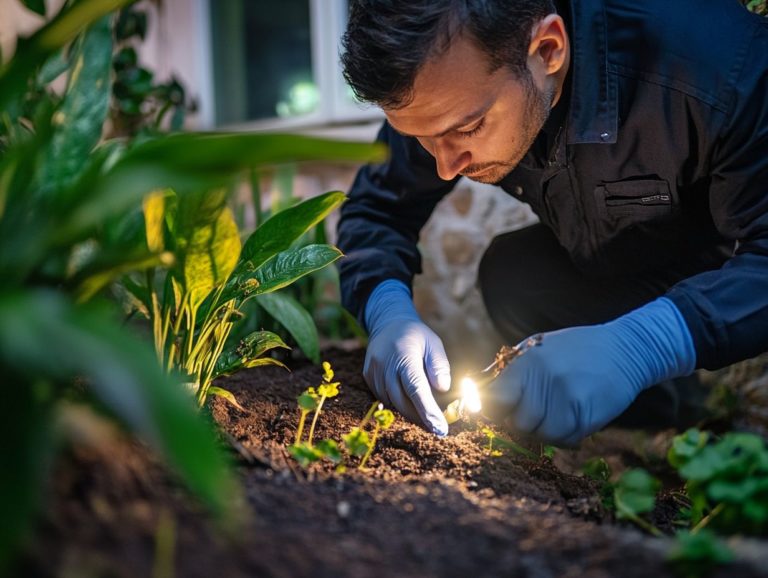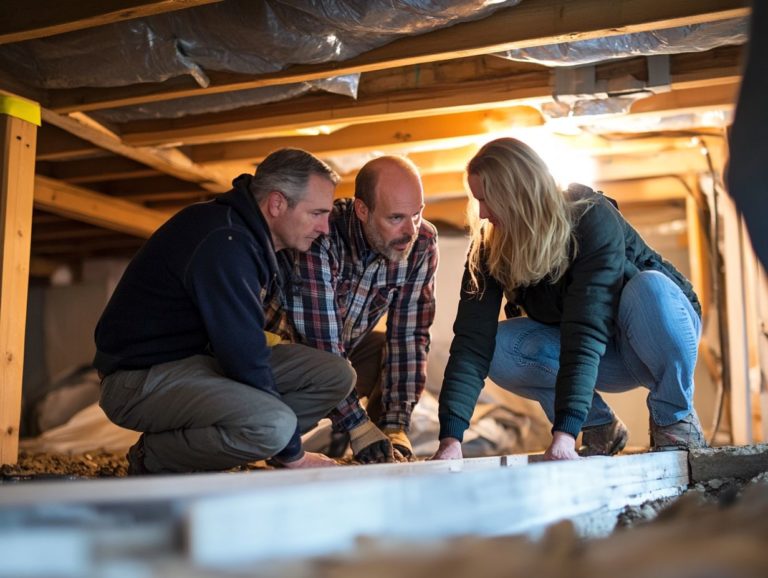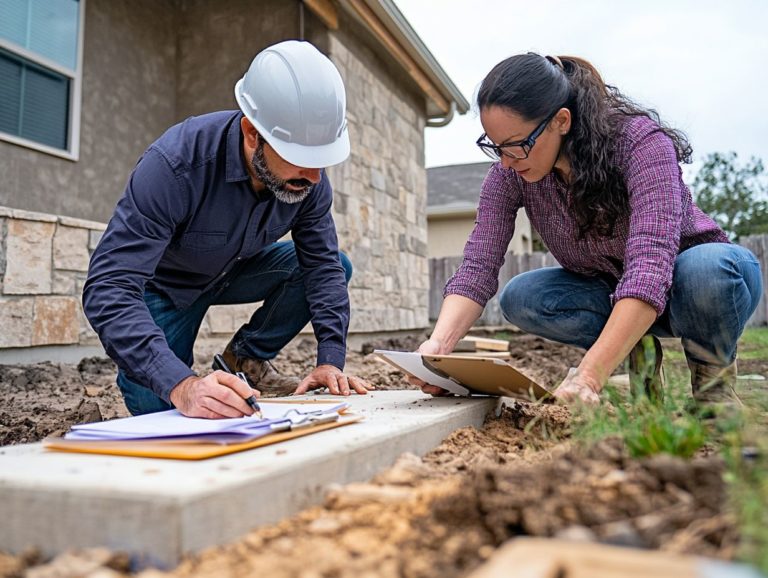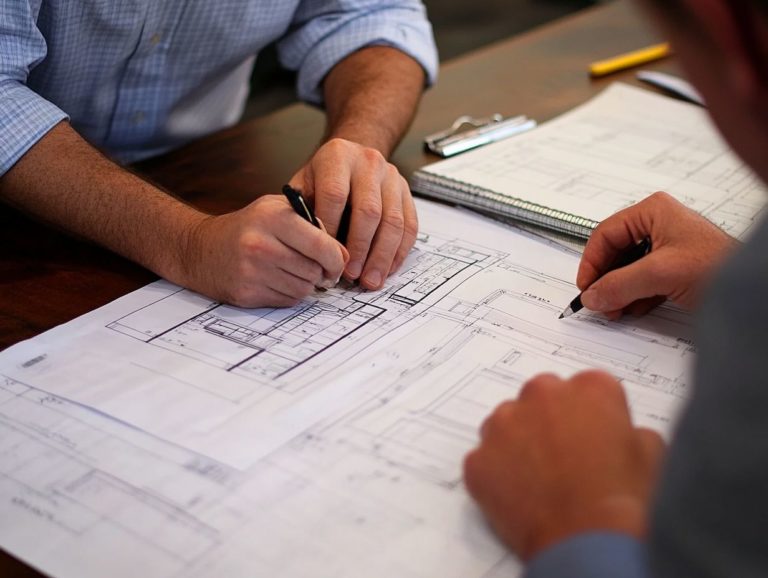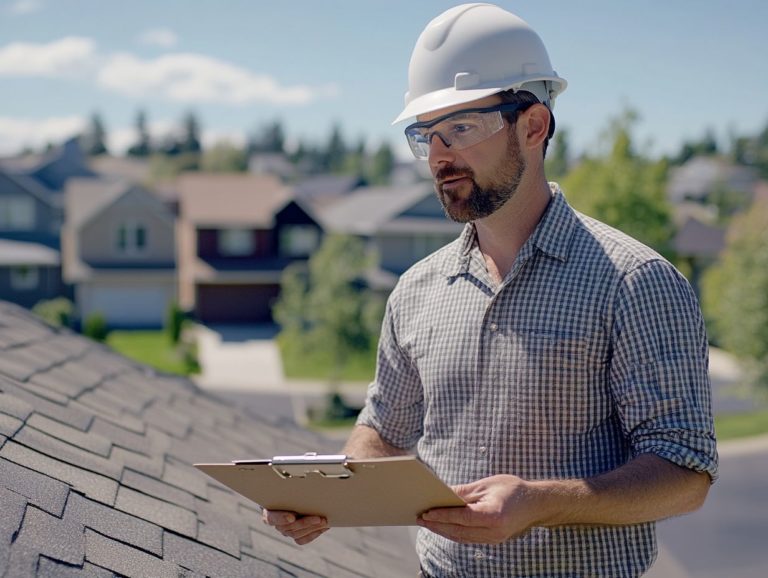What to Look for in a Home Inspector’s Credentials
When you’re in the market for a new home, a thorough inspection can mean the difference between making a savvy investment and falling into a costly pitfall. Home inspections are essential for revealing hidden problems and offering you peace of mind.
However, it s important to remember that not all inspectors are created equal. Understanding their qualifications and credentials can guide you in selecting the right professional for the job.
This guide will highlight the essential qualifications to seek in a home inspector, outline the important credentials that ensure reliability, and point out red flags to be wary of.
You’ll also find key questions to ask, empowering you to make an informed decision. Get ready to take charge of your home-buying journey with this essential guide!
Contents
Key Takeaways:
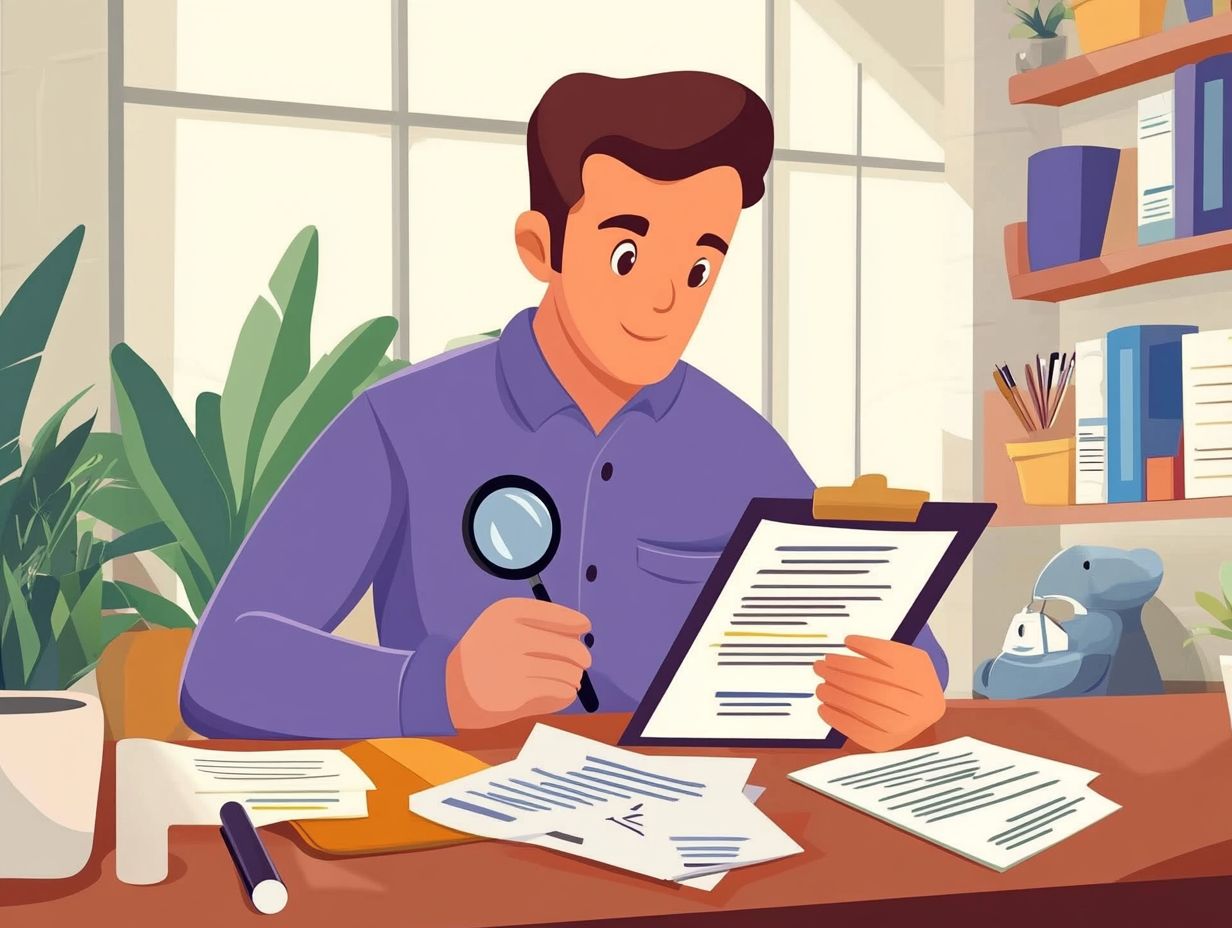
A home inspector’s expertise and qualifications are crucial for a thorough and reliable home inspection. Look for a home inspector with proper education, training, certifications, state licenses, insurance, and professional memberships. Beware of red flags such as lack of experience, credentials, or professionalism when choosing a home inspector. Ask questions to clarify their credentials and experience.
Why Home Inspections are Important
Home inspections stand as a vital step in your home-buying journey, offering invaluable insights into the property’s condition. They help you uncover potential issues that could impact your significant investment.
A comprehensive inspection empowers your decision-making process. You can finalize the deal with confidence, knowing you ve made an informed choice.
The Role of a Home Inspector
The role of a home inspector is to carefully check the property, assessing essential systems such as electrical, plumbing, and Heating, Ventilation, and Air Conditioning (HVAC), all while upholding the highest standards of quality and maintaining effective communication with you, the buyer.
These professionals leverage advanced technologies, including thermal imaging and moisture meters, to find problems that you might not see. By using such tools, they enhance their capacity to provide a thorough evaluation, ensuring you have a clear understanding of the property’s condition.
Clear reporting is vital, as it distills complex findings into easily digestible information, giving you the power to make well-informed decisions. Ultimately, the inspector’s expertise is invaluable, guiding you through the complexities of real estate transactions and fostering confidence and peace of mind during what can often be a stressful experience.
Qualifications to Look for in a Home Inspector
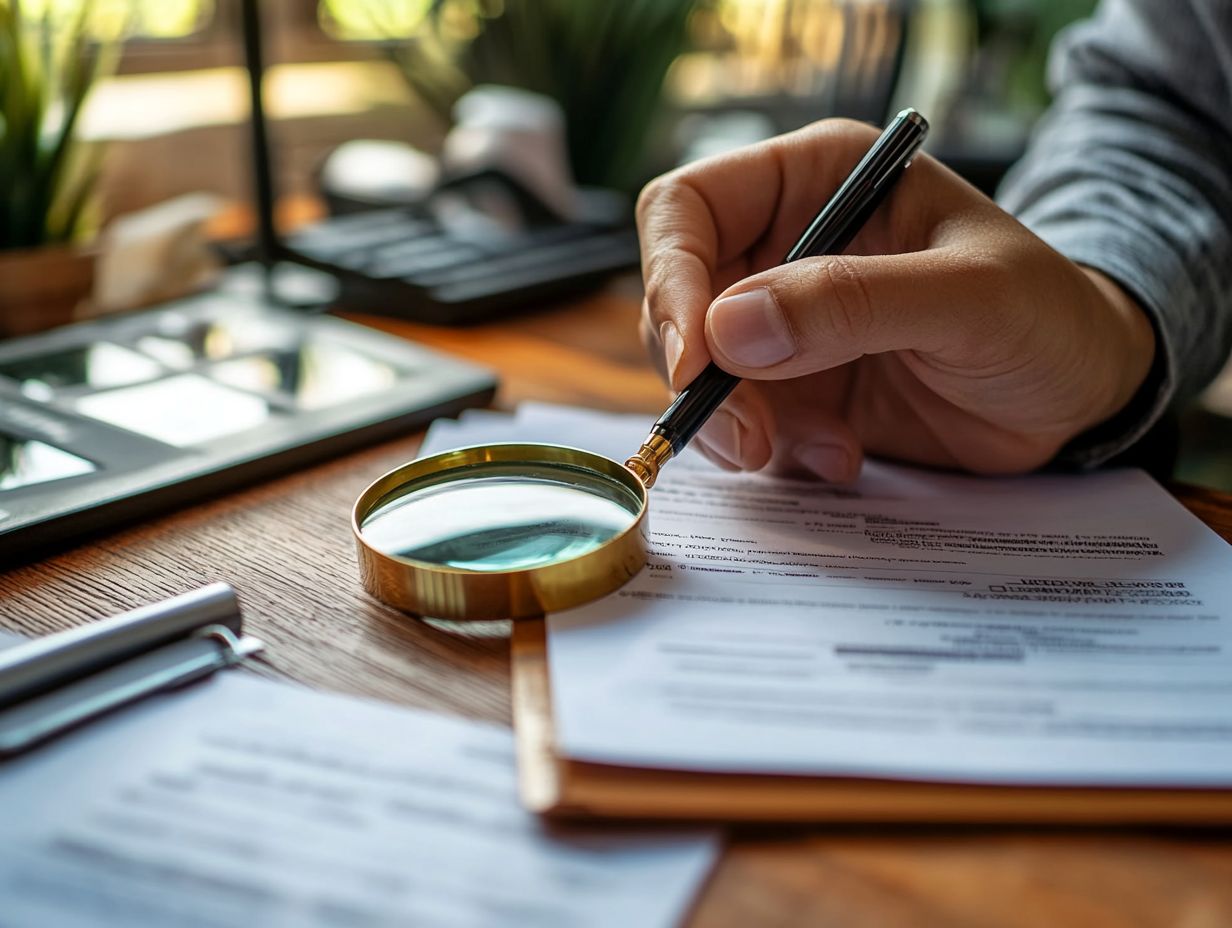
When you hire a home inspector, it’s essential to evaluate their qualifications thoroughly.
Consider their level of experience, relevant certifications, and licensing status. Engaging a licensed inspector with a solid track record, backed by positive reviews and testimonials, ensures that you receive the high-quality service you expect.
Education and Training
Education and training are essential elements of your qualifications as a home inspector. Many inspectors complete courses focusing on home systems and successfully pass the national home inspector exam to validate their expertise.
Beyond this foundational knowledge, you have an abundance of educational options at your fingertips. Consider exploring online courses and hands-on training programs offered by esteemed organizations such as the International Association of Certified Home Inspectors (InterNACHI) and the American Society of Home Inspectors (ASHI).
Continuous professional development is vital for you as a home inspector, ensuring that you stay updated on evolving industry standards and the latest building codes. Many professionals actively engage in workshops and seminars, sharpening their skills and enhancing their competency while simultaneously boosting their credibility in the eyes of clients.
Experience and Certifications
An inspector s experience and certifications are essential indicators of their capability to conduct thorough inspections. When you engage with established home inspector associations, you enhance your credibility and showcase your commitment to quality work and adherence to industry standards.
In a field where precision is paramount, hands-on experience is very important. It not only refines your skill set but also instills confidence in clients who are seeking reliable assessments.
Certifications from respected organizations, such as the American Society of Home Inspectors (ASHI) and the International Association of Certified Home Inspectors (InterNACHI), are crucial for validating your expertise. These credentials show your dedication and give your clients peace of mind.
Obtaining errors and omissions insurance adds an extra layer of protection for both you and your clients, ensuring that any unforeseen issues are addressed responsibly and professionally.
Important Credentials to Consider
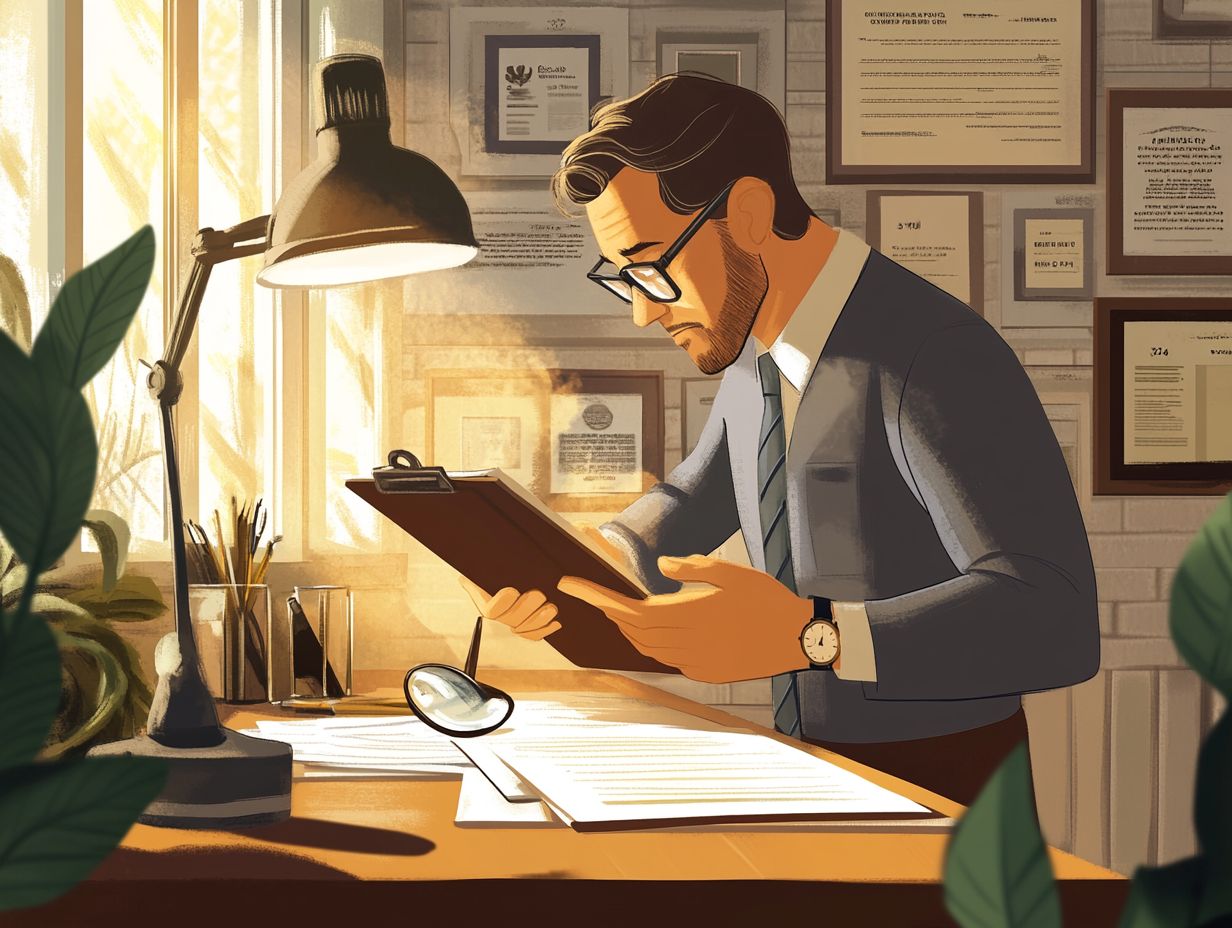
When selecting a home inspector, you must verify their credentials meticulously. This includes confirming their state licenses and ensuring they have adequate insurance coverage. Additionally, check if they belong to a reputable professional organization.
These steps are crucial for guaranteeing that they adhere to industry standards and practices.
State Licenses and Insurance
A licensed inspector must navigate a landscape of state agency requirements, which often include specific educational qualifications and a commitment to ongoing education. It’s equally important to carry adequate homeowners insurance to shield against potential liabilities.
Understanding the local licensing criteria is essential, as these regulations can vary significantly from one state to another. This variability underscores the importance for homebuyers and sellers to familiarize themselves with their specific state’s requirements, helping them avoid any pitfalls during the inspection process.
Having the right insurance protects the inspector from claims that may arise due to oversights or errors. It also provides peace of mind to clients, reassuring them that they are engaging with a professional who takes their responsibilities seriously.
By being informed about these factors, you can make decisions that benefit everyone involved, ensuring a smooth and successful inspection experience.
Professional Memberships
Membership in esteemed professional organizations, like the American Society of Home Inspectors (ASHI) or InterNACHI, serves as a powerful testament to your qualifications and commitment to ethical practices and ongoing education.
These associations validate your skills and provide invaluable resources that keep you informed about the latest industry standards and technologies.
By engaging in training programs and workshops, you can earn recognized certifications that enhance your credibility in a competitive landscape. Being part of such organizations often grants you access to a network of industry professionals, fostering collaboration and the sharing of best practices.
This continuous professional development ultimately reassures your clients about your expertise and dedication to delivering thorough inspections.
Red Flags to Watch Out for
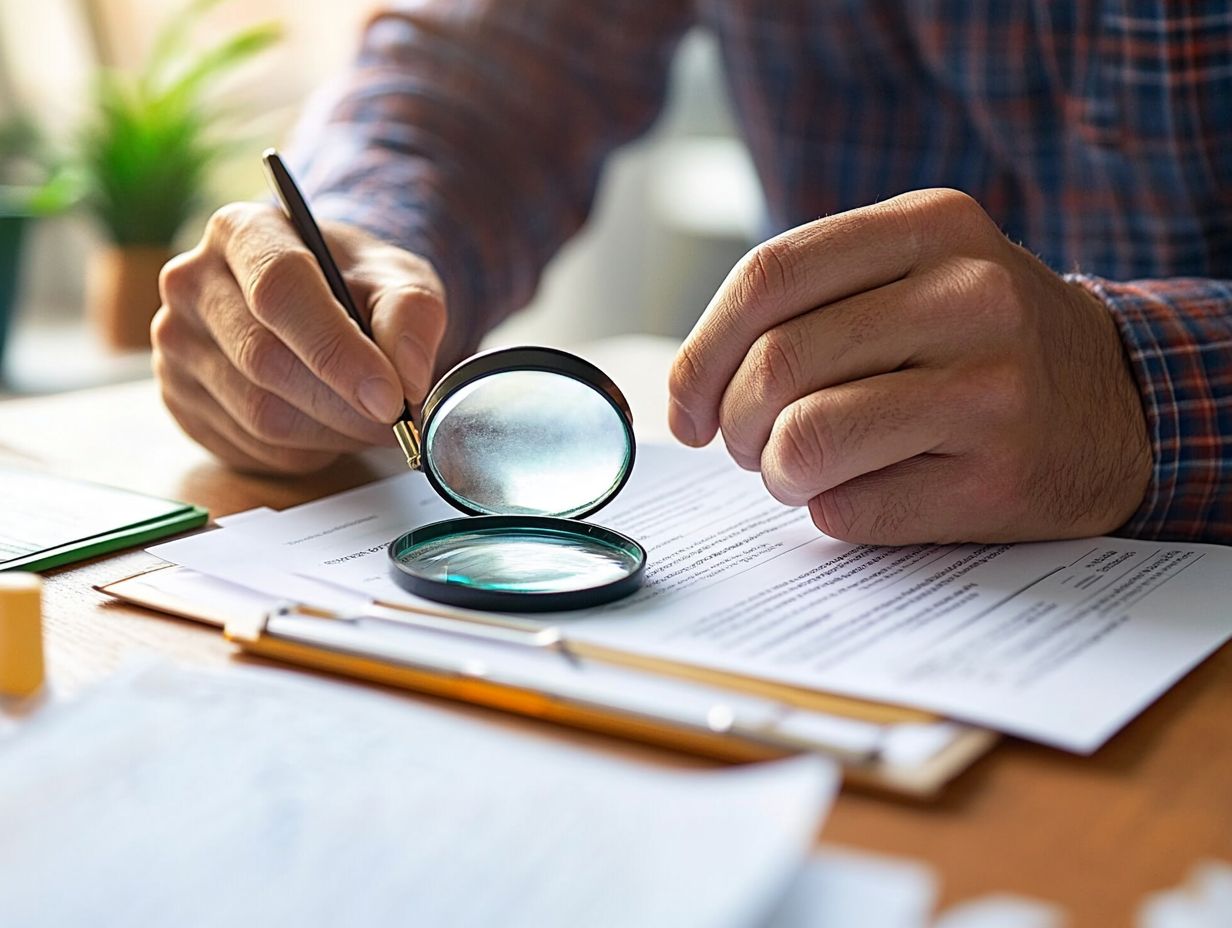
Identifying red flags when hiring a home inspector is essential for avoiding potential pitfalls. Be cautious of these warning signs when choosing a home inspector:
- Unclear communication
- Inadequate reporting
- A lack of errors and omissions insurance
All of these can indicate that the inspector may not be qualified.
Warning Signs of an Unqualified Inspector
Several warning signs can indicate that you may be dealing with an unqualified inspector. Inadequate reporting practices, a lack of relevant credentials, and negative feedback from past clients should all raise red flags for you as a buyer.
If the inspector fails to provide a detailed checklist or struggles to communicate effectively about potential issues, it may suggest a lack of thoroughness in their work. This oversight could lead to significant problems being overlooked, potentially costing you time and money.
An inspector who hasn’t maintained industry certifications may not be up-to-date on local building rules or safety regulations, putting you at risk. Make sure you evaluate these aspects carefully to ensure you select a professional who meets all necessary qualifications and safeguards your investment.
Questions to Ask a Home Inspector
When you interview a home inspector, it’s essential to ask the right questions about their credentials, experience, and communication style. This way, you can ensure that you select a qualified professional who meets your expectations.
Clarifying Credentials and Experience
Clarifying a home inspector’s credentials and experience is vital for you as a buyer. You want to ensure that you’re hiring a qualified professional with the necessary expertise and affiliations with recognized home inspector associations.
By asking specific questions about their background, you can gain valuable insights into the inspector’s qualifications. Don t shy away from inquiring about any certifications they hold; these are proof of professional training and reflect a serious commitment to industry standards.
It’s also important to verify their membership in reputable organizations, such as the American Society of Home Inspectors. Membership in such organizations typically requires meeting stringent standards, serving as a reliable indicator of the inspector’s skill level and professionalism.
Feel free to ask for references or reviews from past clients, as these can provide a clearer picture of the inspector’s thoroughness and overall approach to home evaluations.
Frequently Asked Questions
- What qualifications should I look for in a home inspector’s credentials?
Don’t overlook these key qualifications when choosing a home inspector. Look for licensing, certification, and experience to ensure the inspector has the necessary knowledge to assess your potential home thoroughly. - What is a home inspector’s license and why is it important?
A home inspector’s license is a certification issued by the state or local government that allows them to legally perform home inspections. It’s important because it confirms that the inspector has met certain requirements and has the training to accurately assess a home’s condition. - How do I verify a home inspector’s license and credentials?
You can verify a home inspector’s license and credentials by checking with your state’s licensing board or by asking the inspector for proof of their license and certifications. Reading reviews and asking for references from previous clients is also advisable. - What is a certified home inspector and why is it important?
A certified home inspector is someone who has completed a training program and passed an exam to demonstrate their knowledge and competency in performing home inspections. Hiring a certified inspector can give you peace of mind knowing they have the skills to assess your potential home. - What experience should a home inspector have?
An ideal home inspector should have a combination of education and experience in construction, building, or engineering. They should also understand local building rules and regulations. Look for inspectors with at least 3-5 years in the industry. - Do I need to hire a home inspector with specialized credentials?
It depends on the type of property you want to purchase. If you’re interested in a historic home or a specific property type, it may be beneficial to hire an inspector with specialized credentials in that area. For a standard home inspection, a licensed and certified inspector should suffice.

